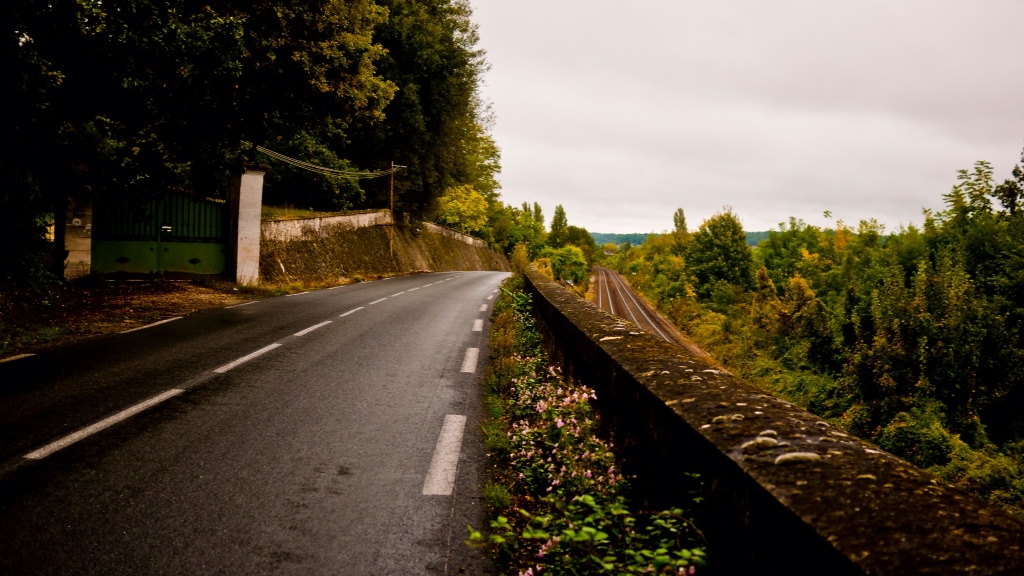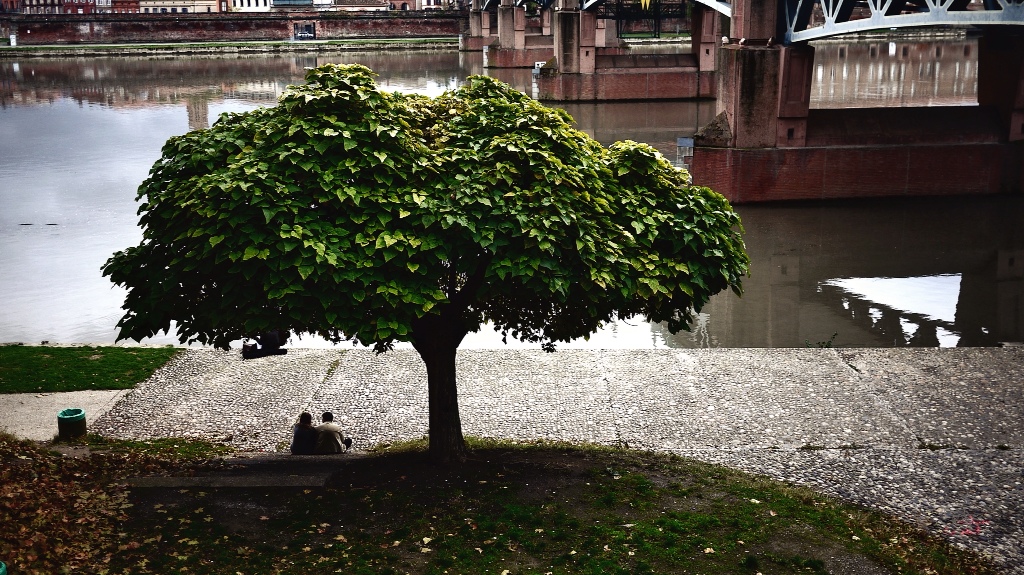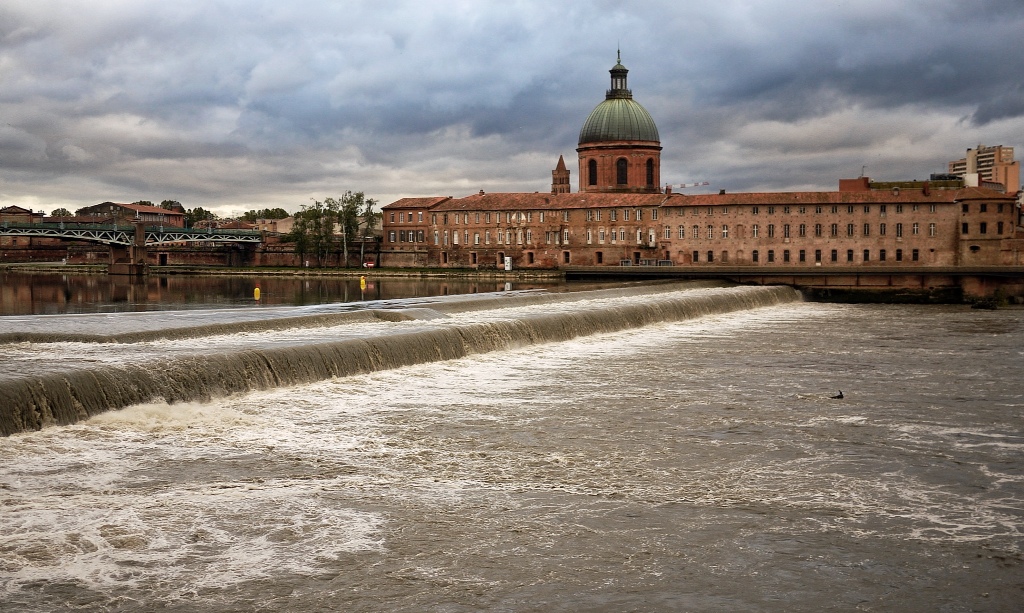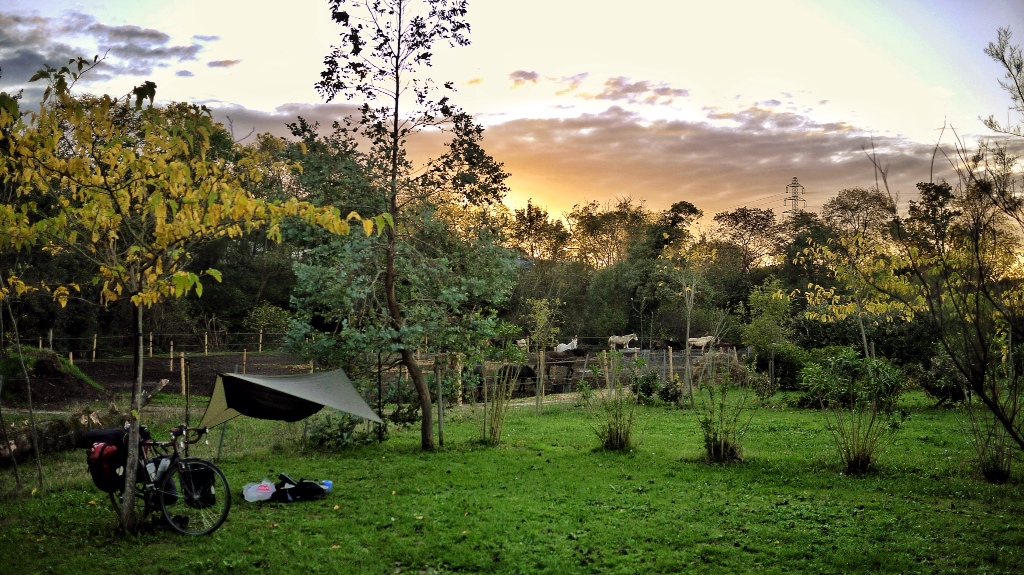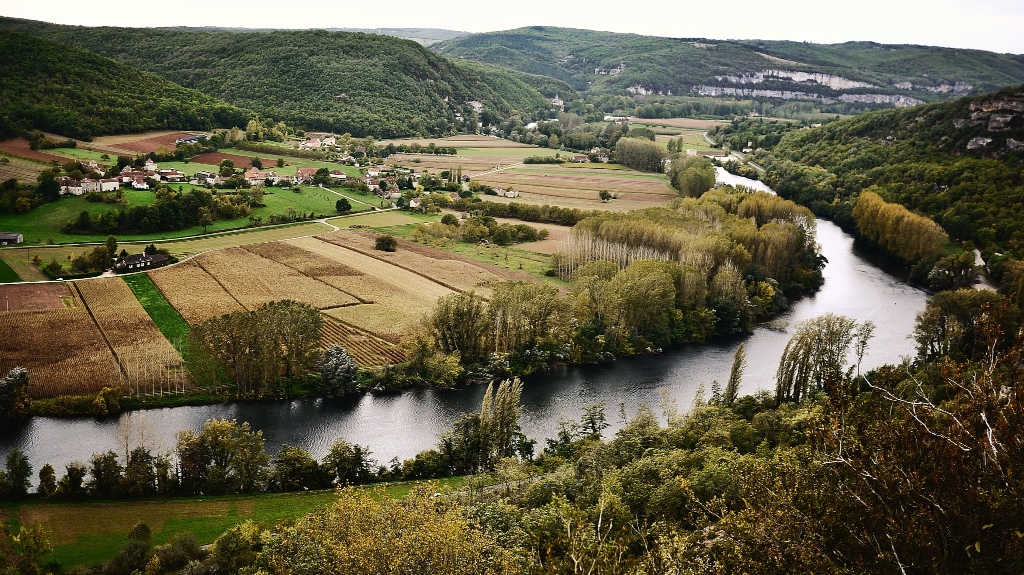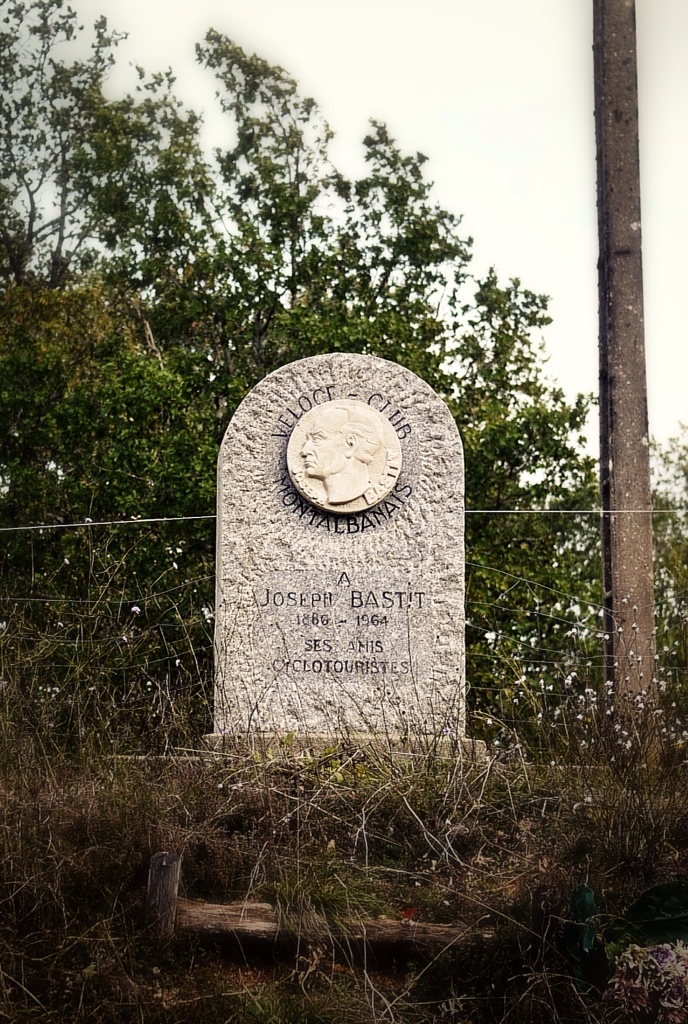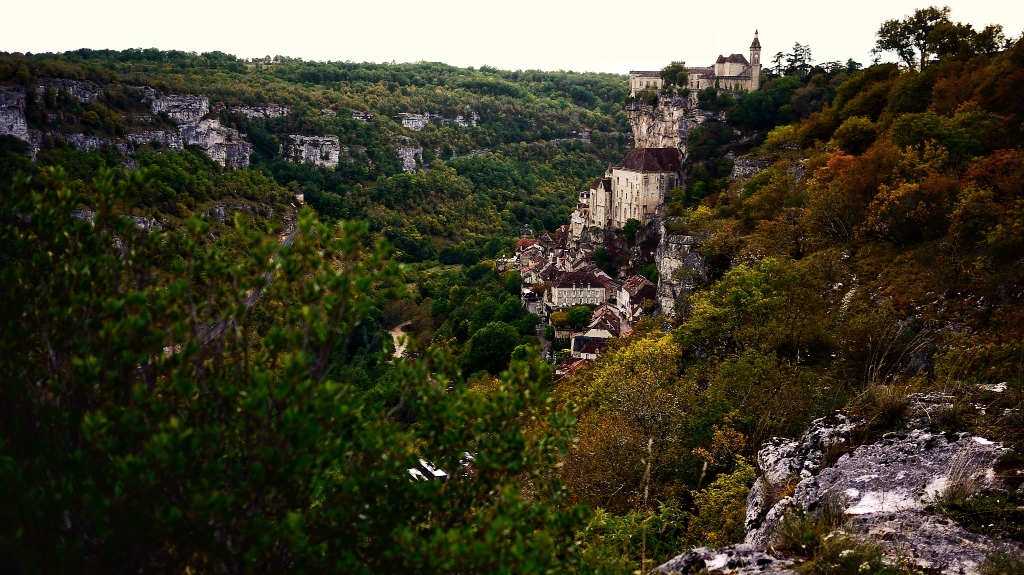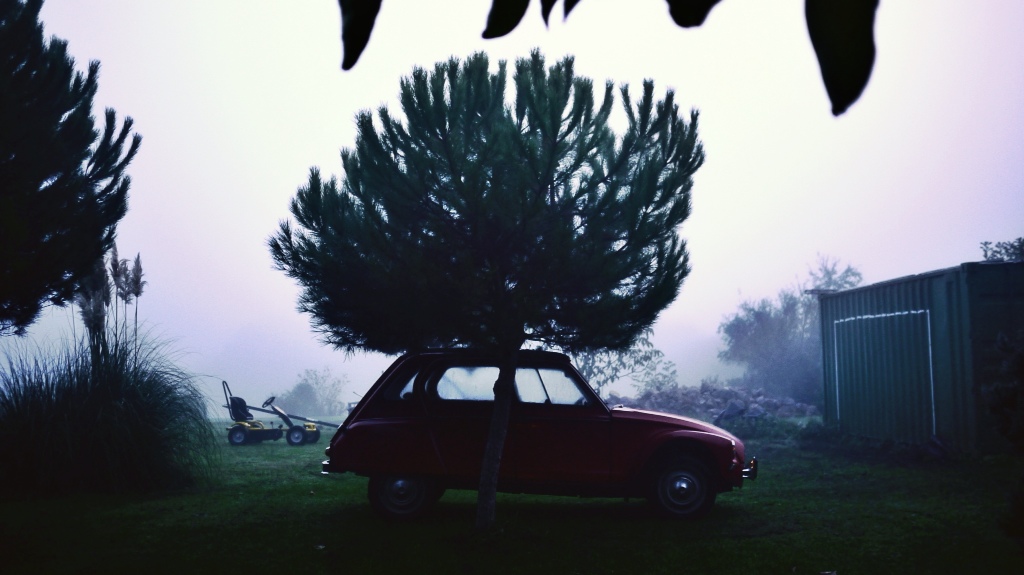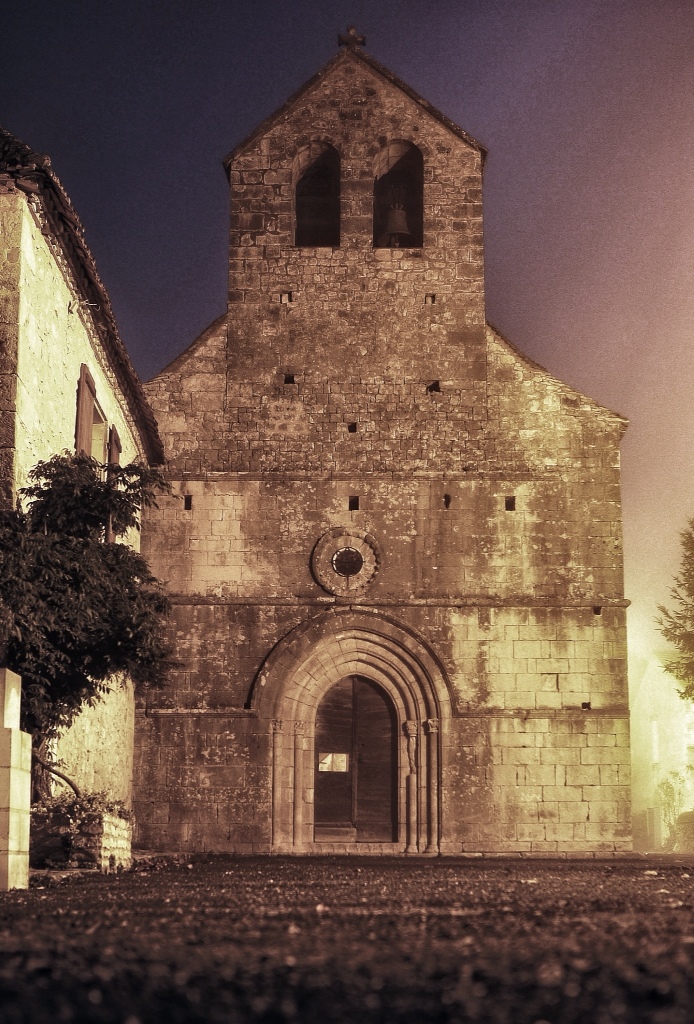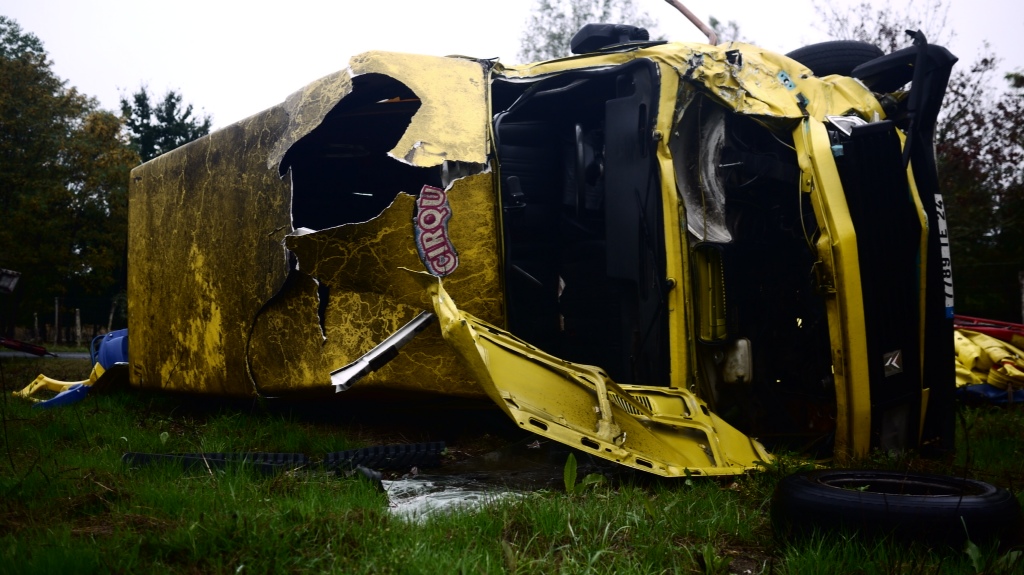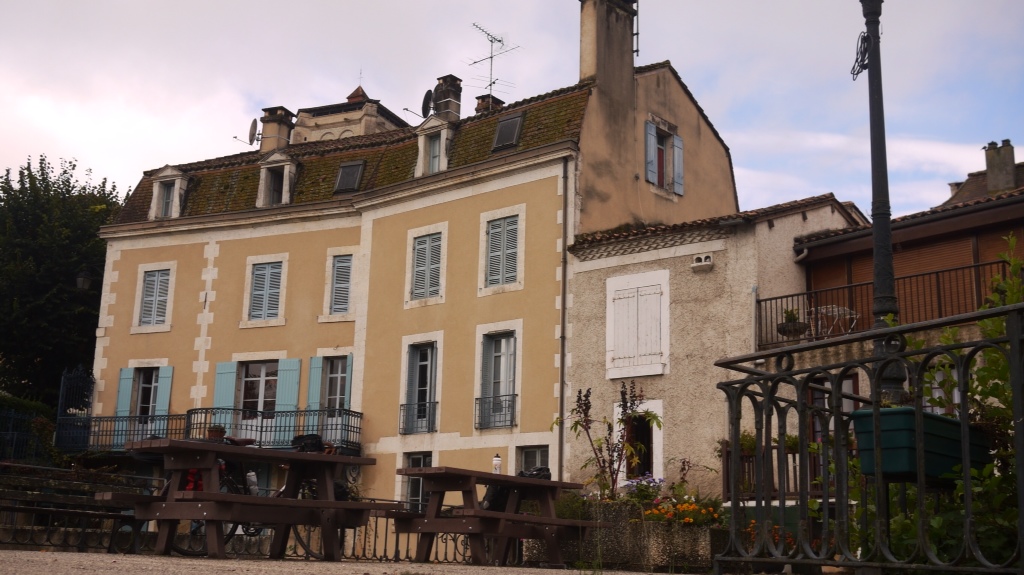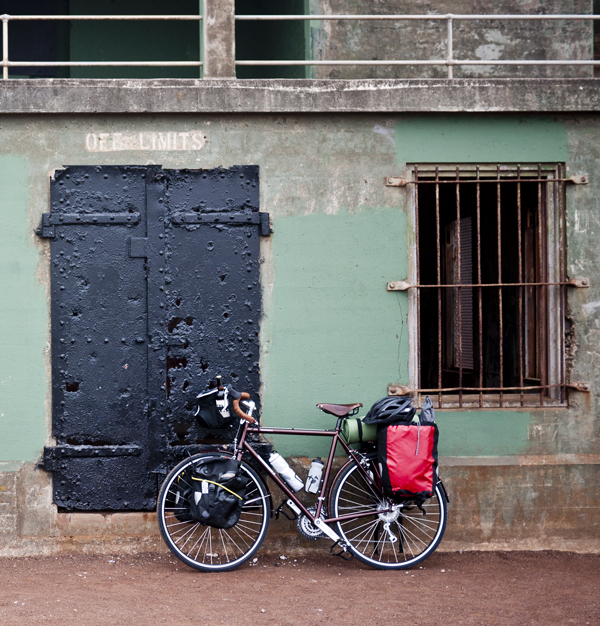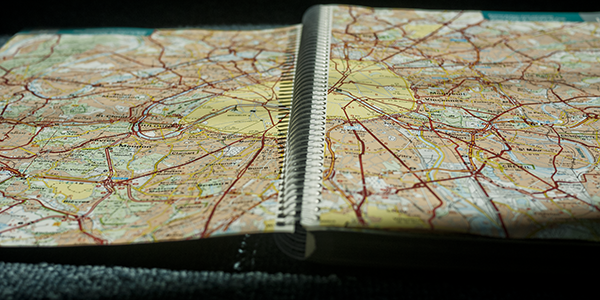Travelling is often a logistical snake pit. Normally the best thing you can do is relax your facial muscles, grip your bags strongly and keep your head up for the signs. Getting from Montpellier to Paris with my bike required more than the kind of traveler's grit that I'm used to. In hindsight, it didn't have to. Which, yes, is often the case.
I woke up before sunrise the day before I expected to leave for Paris. After breakfast, I headed to the train station with the intention of buying a ticket on a bike-friendly train. It didn't matter at what hour it left, or how long it took, so long as I could get my bike on it.
At the station, I was directed from the local train counter to the TGV (high speed) desk. I was told I couldn't buy tickets on the slower local trains to Paris. Approaching the TGV desk, I was stopped again. This time I was told I couldn't buy any tickets for the next day. Afraid of running into bike-related issues if I came back the same day I planned to travel, I sought out someone else for information about bike regulations. What I had read online had been a total confusing mess.
A woman in a red vest (indicating her ability to provide information) told me that I could not, under any circumstances, take my bike on a train leaving Montpellier unless it was in an housse. This is a heavy duty bike bag that can be purchased at sporting goods stores and requires near-full disassembly of the bike. I asked her where I could get one, and she directed me (rudely) to a local sporting goods store.
I should stop to mention at this point in writing that I already feel my blood churning again.
I found the sporting goods store, but it was closed. Unable to find wifi nearby to look up more information, online advice, or prices, I waited. When the store opened, I went in and looked for an housse (rhymes with “loose”). They had none, and the ones that they didn't have were 80€. I talked to the bike mechanic about riding the train with a bike. Impossible without an housse, he said. And they didn't have any and there weren't any other bike shops in town.
Because laying down on the street wasn't an option, I went back to the train station to wrangle more information out of somebody if it killed them. The TGV website clearly stated that there were trains available which allowed assembled bikes. At the ticket counter, I convinced the man who had previously shooed me away to let me talk to an agent. I insisted to her (kindly, I think), that I needed to get back to Paris with a bike. She insisted that it was impossible on any trains leaving from Montpellier. I asked her if any TGV trains accepted bikes, and she said yes. I asked her if any of those trains left Montpellier and she grunted. I said that well then even if they didn't go to Paris they must go somewhere that has another train that goes to Paris. She turned the computer monitor away from me and told me that no, that wasn't possible. I asked if I could take local trains instead of the high speed rail, since local trains ran from Montpellier all over the country and all of them accepted bikes. No, she said, not to Paris. But then to somewhere else, I said, which had trains that ran to Paris. I thought my logic was pretty airtight, but there wasn't any air in the room that she hadn't already sucked out. It was not possible, she said, to take a train to Paris with a bike. Not at all possible without packing your bike into an housse.
I did not want to spend €80 on a bike bag that I needed for one 3-hour trip. Especially when I already had a box in Paris for my bike and luggage for my return trip to San Francisco. It just didn't make sense. I walked away from the counter and found another information agent that I hassled with the same series of questions. I pushed the limits of my French in being as kind as possible while prying for options, ideas. None came.
I decided that all I could do was return to my hosts' apartment and do some serious online research. On my way back, I stopped in a pizza shop. Behind the counter was a 20-something kid wearing a deep v-neck and shaggy long blonde hair. Were it not for his perfect French accent and mannerisms, you could swear he was Californian. We immediately slipped into tutoyer-ing one another, rather than employing vous as the polite impersonal pronoun as is standard with customer-employee interactions. He asked how I was doing, and I laid it on him. My whole morning. As my pizza cooked, we looked at housses online at the nearest sporting goods store. €120. No problem, he said. When he takes the TGV to Nimes with his fixed gear, he just takes the wheels off, wraps the whole assembly in plastic or garbage bags and brings it on board with him as luggage. The news was so good that I made him repeat it a good number of times before I accepted that I was getting every nuance in translation.
Leaving with my pizza, I was more hopeful but still full of questions. Why did they demand an housse, if it wasn't actually necessary? Did his strategy only work because he had a small fixed gear instead of a huge touring bike, fenders and racks, and 5 bags? Was this only possible on trains leaving for Nimes, and was there still going to be a problem heading to Paris?
I headed back to the apartment and searched online more. What my research revealed was that every person's story was different. What it came down to was how kind the controller of the train felt toward cyclists, it seemed. L. had an housse that he was willing to sell me for €40. Fine, I thought, if that really solves my problem then to hell with the money. But it didn't fit.
Many of the things that people told me that day were factually untrue. One such thing was that there were no other bike shops nearby in the city. L. walked me to one only a block from his apartment. Once inside, I talked to the mechanic about my issue. He spoke too fast for me to fully understand. But he gave me a cardboard box that a bike shipped in. With it, I figured I could make my own housse. The only problem was that it was massive, far bigger than the box that my bike was shipped in.
I left the box outside of L.'s apartment and walked to the local supermarket. There I bought the biggest garbage bags I could find–the ones made for hauling yard debris. I also bought a rolling of packing tape. Between the cardboard and the packing tape, I figured I must be able to construct something capable of bringing my bike onto the train.
That night I consolidated my bags into the smallest units I could. I threw away whatever extra items I could manage. I left behind trash and extra food, but not much else. Mostly I utilized clever packing to put all of my six bags (four panniers, a handlebar bag, and the guitar case) into only four (three panniers and the guitar). All of my expensive and important stuff was in one bag, my camping stuff in another, my clothes in the third, and the guitar in the fourth.
Figuring that I would have a better experience with people under less pressure, I went to a local SNCF office instead of the train station to buy a ticket. In my best and most polite French, I explained my situation to a woman sitting behind a desk in front of me. She gave me her friendliest grimace as we both crunched on the problem. Give me a ticket to the least popular train, I said. Less people means less problems with luggage. She printed a ticket for the 6:20am train to Paris. Technically the ticket was not refundable. But, she said, if the controller does not let you on the train, I will be working tomorrow. Have him sign the ticket and I will refund you the €83. It was kind, but that still meant my worst case scenario was being stuck without a ride home.
I sat on the couch that night for a long time staring at my things. After a while, I measured a section of the cardboard box. I cut it into a long wide strip with my knife. I folded the strip up and wrapped a bicycle tube around it. Then I stuck a pen through the loop, making a handle. It was unruly, about the size of an art student's largest portfolio. But I figured it was possible to carry on my bike. Then I stared at my things some more. Almost without exception, no one was confident that I could get onto the train to Paris.
I checked the total road distance, to see if I could ride my bike there on time. It would have to be considerably more than my previous best days. Beyond grueling, I was sure that I couldn't physically pull it off in time to make my plane. I had to get on the train.
That night, I went out for drinks and burgers with L. and his friends. I'm certain that I appeared distant, hopelessly focused. I was planning for the next day. At 4am, I would wake up. I would get dressed and quickly eat. Then I would gather my things and ride to the station. Once there, I would get out my tools and disassemble my bike. I would wrap it in plastic and consolidate everything on the train platform. Then I would walk onto the platform and hope for the best.
Somewhere between the beers and the burgers it started to rain. I quipped to L. that I sure hoped it wouldn't be raining at 4am.
That night, as I lay on the couch for my four hours of sleep, I listened to the rain. It came down harder and harder. I visualized how I would cover everything with the plastic bags, how I would disassemble the bike, what I would say.
When I woke up, the rain was sliding with a determined sound from the gutters. I opened the shutters and watched it stream down from the sky in sheets. No matter, I thought. This was the trip, getting home.
After eating, I wrapped my things in plastic and made three trips down the stairs with my bike and bags. I used the bike's odometer, even though it was only a few kilometers to the station. If I was going to do this, I wanted it to count.
The wind was strong and the rain heavy and constant. The cardboard box's carrying handle worked well, but it operated like a sail in the heavy wind. I was constantly overcorrecting my steering and driving myself madly along the wet roads and sidewalks. The damned thing was heavy, too, and I occasionally had to rest my hand on the handlebars. This made the entire steering problem considerably worse. The road ahead of me was closed in the direction I was heading, but open to oncoming traffic. I was unwilling to get lost on the winding French streets and rode down the wrong lane. It was not unreasonably dangerous in the light traffic of the early morning. Two blocks from the station, the road was flooded. I watched several vans timidly proceed through the deep water, watching for the shallowest splashes. At the far end of the sidewalk, I found a route that was uninundated and proceeded to the station.
At five in the morning, train stations are not strictly the least shady places on earth. I kept a close eye on my various bags as I worked deliberately to disassemble my bike. I used the plastic bags that had protected my items in the rain to wrap up the frame and the tape to hold everything together. When it seemed a reasonably tight and sturdy package, I folded the cardboard on the ground. I placed the bike on the folded cardboard and taped it into a casket. I followed up by cutting off extra pieces and forming everything into the smallest package that I could. When I was finished, it was 8 minutes before my train was to leave (although I had worked quickly and given myself over an hour). If I had had the time, I would have taken a picture of my creation, I was very proud of it. I cut a handle into the box and carried everything onto the platform. The train was waiting.
When I reached the platform, I made a well-meaning mistake. I saw the train controller and asked him the best place for my box. There was no good place, he said. It could not go on the train. I told him that I spent the previous day talking to employees at the station and they insisted this was the best method and the best train. It didn't matter, he said, there was simply no place on the train for my box. I asked if there was a car for luggage, he said there wasn't. I asked if there was a better train I should have bought tickets for, he said it was simply impossible on the TGV, regardless of the train. I switched from logic to compassion and explained that after two months of bike touring I just wanted to go home. He was unphased, and told me to talk to the porter just down the platform.
I carried my things to the porter who told me the same thing, it was simply impossible on this or any other TGV train. He told me to talk to the controller, who I said had told me to talk to him. He walked over to the controller then walked away without looking at me. I walked to the controller and asked him what the porter had said. Nothing, he responded. It's not possible. There's no space for it on the train. It could go in front of a seat, I said. It would fit. I could stand for the the three hour ride. Impossible, he said, there's just no room on the train. As I began to feed him the human interest angle again, he began to intentionally speak French too fast for me to understand as he looked away towards something else he could do.
As speakers throughout the station announced the departure of the train, I thought about what the woman at the ticket counter had said. I wouldn't be able to get on the train, but at least I could get my money back. As I was getting out my pen to ask the controller to sign a ticket, a man ran off the train. He told me and the controller that he rode the TGV all the time with his bike and baggage. He just takes the wheels and wraps it in plastic.
I did that! I nearly shouted, in French. I tore open the box to show him that the bike was wrapped in plastic. I pulled the bike out and kicked the box away, onto the platform. The man looked at the controller, and told him, insisted to him that it would fit. The controller said that it wasn't regulation sized. Regulation is a meter, the man argued. He got down onto a knee and stretched his arm against the bike. It's not more than a meter, he said. It would fit. When I picked up the bike again by the top-tube, the man raised his voice to the controller, “hand luggage!” he said, “now it's not a box, now it's hand luggage!”
“S'il vous plaît,” I said. “S'il vous plaît.” The controller grunted and looked away in a mannerism that suggested reluctant acquiescence. The man turned to me and asked me if I needed the box. I said that I didn't and he grabbed it to go put it somewhere out of the way. I have thought numerous times about whether and how sincerely I remembered to thank him.
The train was leaving in moments and I nearly ran to my car, which was far down the platform. It was an action that took considerable effort. Once on the train, I slid my bike onto a high luggage rack. I found space for my bags on a rack below. Then I looked around and saw all of the other space on the train where my box could easily have fit. But I was no longer in a mood to be spiteful. I was on a train to Paris, and my bike was on the train with me.
As the train pulled away, almost instantly, I couldn't help but run through the morning's events in my head a few times. What had gone right and wrong, what I could have done better. Eventually my overstimulation settled to a simmer and I fell asleep against the window.
After about an hour, I awoke. The familiar French countryside streamed by at impossible speeds outside. My plan previously was to assemble my bike at the Gare de Lyon and ride the few kilometers to R.'s apartment. To return just as I had left. But the more I thought about it, the less I wanted to find a corner of a busy train station for bike assembly, only to disassemble it again the next day for my flight. Instead, I decided to take the metro with my bike and luggage in hand.
In Paris, I waited for everyone else to leave the train before taking my bike down from the luggage rack. I got my bags off the train and carried them down the platform to the station. That short distance was incredibly fatiguing. I stopped to arrange my things as well as possible. I wrapped the bike in more tape, securing the unit as tightly as possible. I put straps on my two heaviest bags and put them over each shoulder, crisscrossed. Then I walked towards the escalator.
I was carrying everything that I had needed with me for 41 days of bike touring, and the bike itself. My muscles fatigued quickly and I stopped often to rest. Busy Parisians bustled past me, often knocking into the bike frame or bags. I had to make one transfer, and the other platform was far. I had to take another long walk. Once I finally made it to my station, I moved towards the exit. The man in front of me watched as he let go of the door and it slammed closed on my bike. A young girl held it open for me and smiled. I smiled back.
Above ground, I had made it. Without leaving anything behind of value, I had made the full round trip of France. My hands were shaking from the physical effort of carrying the heavy bags. And writing this now, two days later, my shoulders are still sore.
I punched the door entry code to R.'s apartment and then rang his bell in the vestibule. He wasn't home. No matter. I left the bike in the vestibule and took my bags to the nearest cafe. I had only a few hours to wait for him, and the whole thing would be done.
For those interested in taking the TGV with a bike, I now know that I made two big mistakes. I tried to protect my bike too much with the cardboard and I stopped to ask the controller where to put it. I think everything would have gone smoothly if I'd simply wrapped it in plastic and walked right onto the train.


